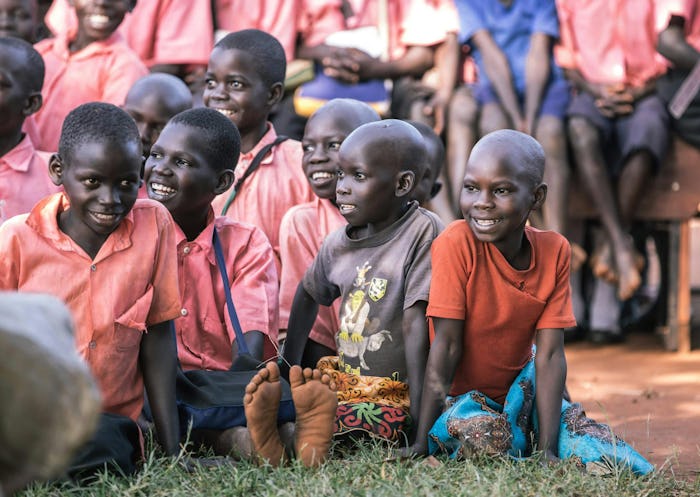You are making a difference in Uganda!
A glimpse of what your sponsored child’s life is like in Uganda:
HOME LIFE
- Most people in rural areas eat two meals a day: lunch and supper. Popular dishes include “matoke” (a staple made from bananas), millet bread, cassava, sweet potatoes, chicken and beef stews, and freshwater fish.
- The extended family is a kin group where men have authority in the family, and women are dependent on male relationships.
- Visitors and neighbors who drop in are expected to join the family at a meal. It is considered impolite to leave the room while others are eating. When a meal is finished, everyone gives a compliment to the mother.
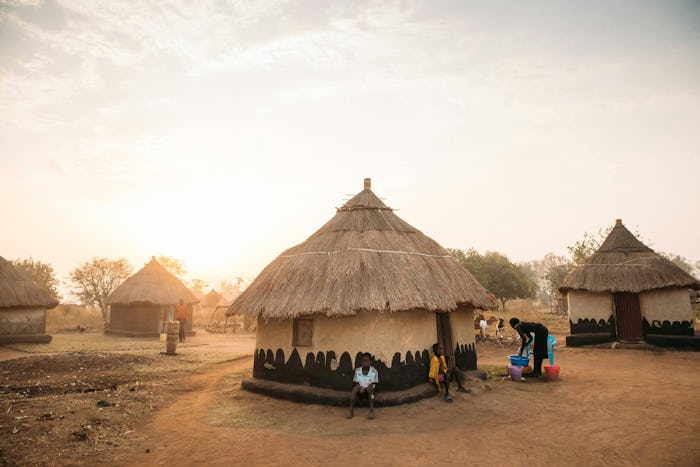
SCHOOL AND EDUCATION
- The school year runs from February through December. Primary school tuition has been free in government schools in Uganda since 1997.
- Still, students in rural areas face serious challenges in finishing their education. They lack school materials, and since meals are not provided, they often have to study all day on an empty stomach.
- Classes in Uganda are not based on age because children often drop out and re-enter school. Although tuition is free, parents must pay for uniforms, school supplies, testing, bus transportation, school maintenance, and more.
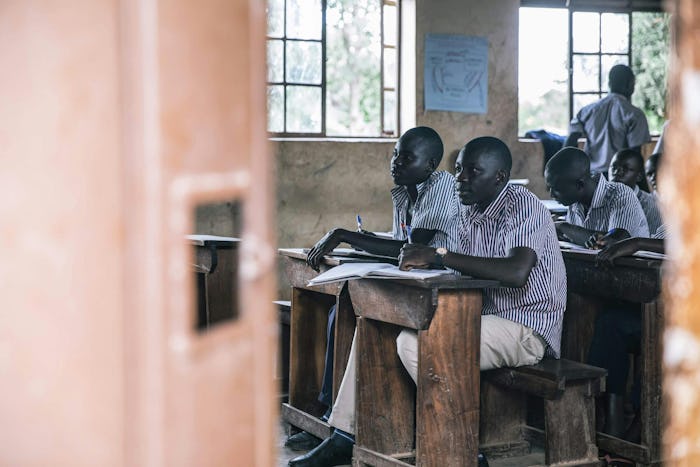
UGANDAN CULTURE
- Shaking hands is the normal form of greeting.
- Football (soccer) is the most popular sport.
- The music style “Kadongo Kamu” became a popular music genre that emerged from traditional Ugandan music. The term “kadongo kamu” is a Lugandan phrase meaning “one guitar,” and the music features the bass guitar.
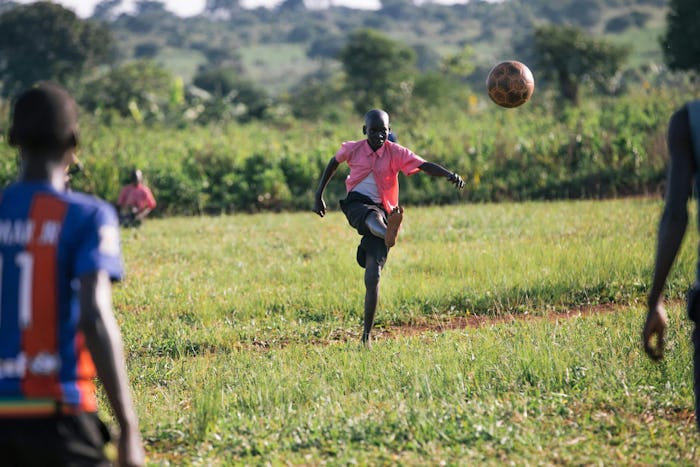
COUNTRY INFO
Uganda is a completely landlocked country in East Africa, and the world’s second most populous landlocked country after Ethiopia. Since its independence, Uganda has experienced several instances of political instability.
- Capital: Kampala
- Population: 39,570,12
- Language: Swahili and English

FH IN UGANDA
In 1988, FH began working in Uganda with a focus on meeting the long-neglected physical and spiritual needs of prisoners and prison staff. In 1990, FH partnered with UNICEF to begin a water and sanitation project in the northern districts. By 1992, FH engaged in an agriculture program for the resettled herdsmen shortly after the war in the 1980s. Many children were orphaned by the war, which gave rise to the child development program. Since then, FH has focused efforts on doing long-term development work with a focus on livelihoods, education, health and HIV/AIDS prevention, treatment, and care and support.
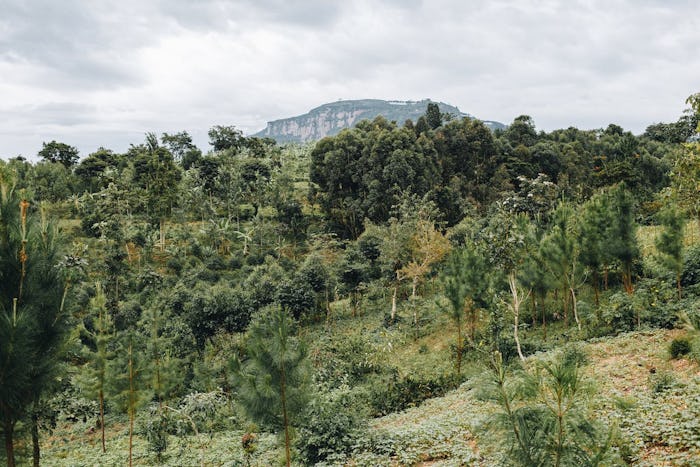
YOUR SPONSORSHIP PROVIDES:
- Access to education through the construction of classrooms, latrines, teacher housing, and support for school-related costs and supplies. You are also implementing childhood development training for teachers and caregivers.
- Training on advanced farming techniques, health and nutrition, water, sanitation, and hygiene.
- Livestock distributions, food storage equipment, savings groups to help families save more and take out loans when needed, water systems and latrines.
